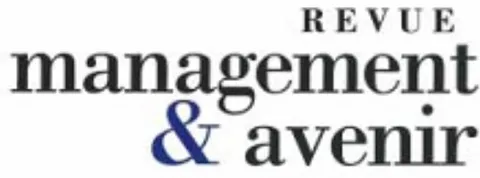
Investments and entrepreneurial projects in the face of gender stereotypes Abdoulkarim IDI CHEFFOU and Annie BELLIER (Université de Cergy-Pontoise).
Summary
In this study, we focus on the financing of entrepreneurship at the seed stage (after the love money phase, when funds are provided by the creator's family and friends), when project owners solicit private investors, known as business angels (BAs), to invest in their startup, and, more specifically, on the individual behaviors of the various stakeholders, particularly from a gender perspective. In terms of diversity, in the majority of traditional BA networks, on the supply side, women investors are in the minority, which means they operate in environments that are potentially threatening to them when they are called upon to perform stereotypically male tasks such as evaluating project business plans. A stereotype is officially defined by the French Community's Equal Opportunities Directorate as "a set of socially shared beliefs about traits characteristic of members of a social category". Stereotyping refers to the tendency of human beings to categorize people into general groups such as race or gender, and thus to develop beliefs about the characteristics and behavior of individuals belonging to these groups (Powell et al. 2002). Women would be nurses, secretaries, etc. and men engineers, business leaders, etc. (Heilman 1983, 2001). When women find themselves in a group where they are in the minority (notion of token women), the dominant group, i.e. the men, tends to resort to stereotypes concerning the characteristics of these women in analyzing their behavior (Kanter 1977). Finance is generally considered to be a stereotypically masculine activity, since it requires a large proportion of mathematical skills which women are less likely to have than men. The BA field seems well-suited to the study of gender stereotypes in finance because, on the demand side, business creation is seen as a stereotypically male activity (women lack self-confidence, charisma, etc.) and, on the supply side, women are seen as more risk-averse than men when it comes to investing.
The aim of our study is to analyze the impact of gender stereotypes on the risk aversion and self-confidence of women investors and entrepreneurs, filling a gap in the literature. To this end, we examine questionnaires completed by BAs immediately after plenary sessions, in which they assess, among other things, the credibility of project business plans, the degree of confidence they have in female entrepreneurs, and express their investment intentions. To test our hypotheses, we collected data measuring BAs' "on-the-spot" reactions to entrepreneurs' presentations, from a consortium of investor groups including Paris Business Angels, the largest structured network of BAs in France. The consortium has a total of 419 BA members, 9% of whom are women. The data covers a 6-year period (2011 to 2016).
The results show that on the supply side, female BAs assess the credibility of entrepreneurial project business plans (a task considered stereotypically male) more severely than male BAs. It also emerges that female BAs show less intention to invest than their male counterparts following entrepreneurial pitches. On the demand side, our results show that female entrepreneurs systematically ask male-dominated BA networks for a lower amount of funding than male entrepreneurs (for the same startup size). Finally, our results show that women entrepreneurs who make their pitch in the presence of at least one female BA in the audience feel more confirmed in their entrepreneurial role or more legitimate, and gain more self-confidence, compared to women entrepreneurs making their pitch to an exclusively male audience of investors, resulting in greater investor confidence in them.

